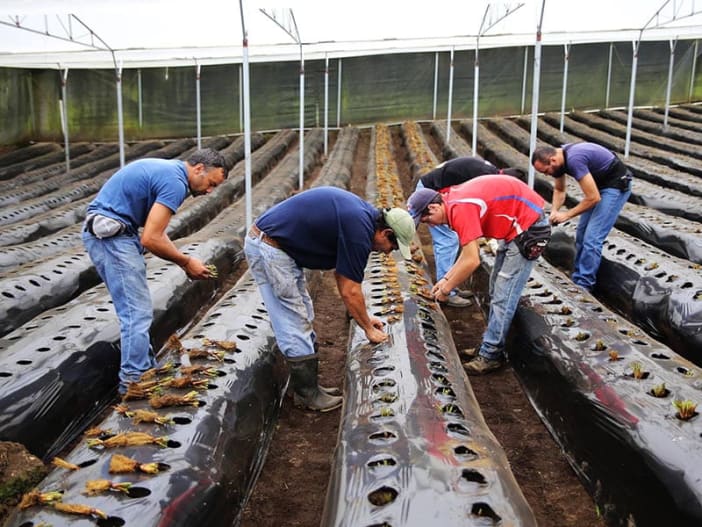Crunchy Peanut Bars
You will need…
- 1kg (4 cups) roasted peanuts
- 1kg (4 cups) water
- 2kg (8 cups) brown sugar (use white if brown is not available)
Shell and roast the peanuts until lightly brown. Cashew and other similar nuts could also be used. Grind them coarsely.
Dissolve the sugar in the water and heat until it begins to thicken. Add the peanuts and stir constantly to prevent burning. Test regularly for setting by dropping small amounts into cold water in a cup. When it forms hard balls remove from heat and pour either into a shallow tin or onto a greased board. Roll to a sheet 1/2cm thick and cut into small bars before it cools and sets. (You’ll need a hammer once it has set!) Wrap with cellophane or wax paper.
WARNING: Getting the setting point right is all important. There are only a few minutes between soft balls (which will not set), hard balls and a pan of burnt sugar! Experiment first with smaller quantities. BOILING SUGAR IS VERY DANGEROUS – KEEP CHILDREN AWAY.
The Cook
Maria Neide Da Silva gets up at 2.30 every Saturday morning to prepare her market stall in the small town of Princesa Isabel, in north-east Brazil. She cooks breakfasts and lunches for the people coming to the market. She’s been helped by loans from Ação Evangélica, a group of evangelical churches in the region which operates a micro-enterprise scheme to combat local poverty. It’s hard work, but it makes a big difference to the family’s income. With the extra money the business brings in, she and her husband have been able to gradually build a home for themselves and their children.
The dress-maker
MARIA DALCIA RIBEIRO DE BRITO has a part-time job in a sewing workshop in Imaculada, in north-east Brazil. The business was started by João and Jacilene Caetano, seeking ways of earning income in an area with very low employment. They borrowed a small room in an outbuilding, and with a loan from Ação Evangélica bought three sewing machines. The business has gone well, and they’ve been able to pay off the loan, although they’ve had to respond to changes in the market in order to keep the business going.









